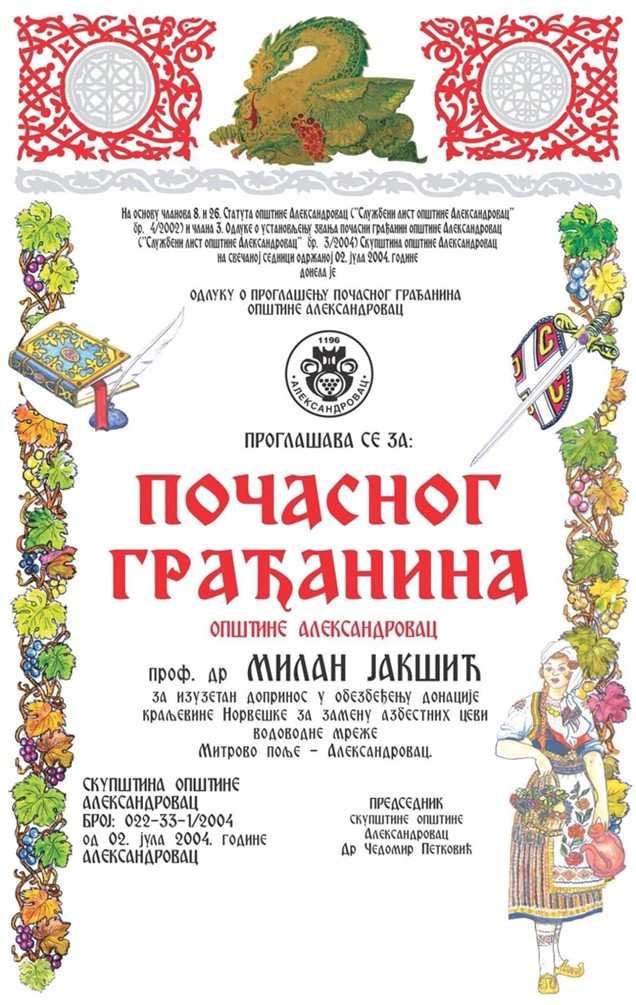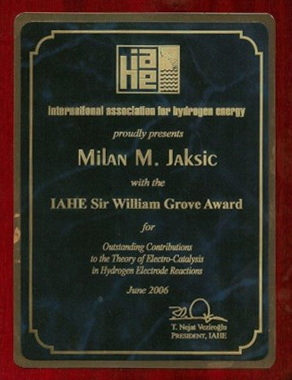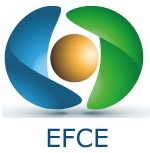Professor Milan M. Jakšić
(1932-2022)

Professor Milan M. Jakšić was born in Alaksandrovac (1932), near Kruševac, the last capital of medieval Serbia. He received his high school education in this historic town and graduated with a degree from the Department of Physical Chemistry and Electrochemistry of the Faculty of Technology and Metallurgy at the University of Belgrade in 1958. In 1970, he completed his Ph.D. on the subject ‘Advances in modified electrochemical technology for chlorate production’ at the University of Belgrade.
His professional journey led him to various roles, including managing the chlorine and chlorate plant at the Factory of Plastics and Chemical Products ‘Jugovinil,’ in Kaštel Sućurac, near Split, Croatia, from 1958 to 1966. Subsequently, he served as the principal investigator in the Center of Electrochemistry at the Institute of Chemistry, Technology, and Metallurgy of Belgrade, where he founded the Industrial Electrochemistry Division from 1966 to 1978.
Professor Jakšić's extensive academic career included positions such as Professor of Electrochemical Processes at the University of Split in Split, Croatia, from 1963 to 1975. Later, he became a Professor of Physical Chemistry at the Faculty of Agriculture, University of Belgrade, from 1978 to 2000. At the same time, he was a Professor of Physical Chemistry of Surfaces at the Center for Multidisciplinary Studies, University of Belgrade, from 1971 to 2000. Additionally, he did postdoctoral research at the Department of Chemical Engineering of the University of California at Berkeley from 1976 to 1978.
Throughout his career, Professor Jakšić made significant contributions to electrocatalysis. He pioneered and established the fundamental principles underpinning contemporary electrocatalysis, dedicating substantial efforts to advancing synergistically active, reversible electrocatalysts for the hydrogen electrode reaction, a milestone in scientific contributions. In addition, he served as a visiting professor at various institutions, such as the University of Trondheim (NTNU) (1989/90) and the Department of Chemical Engineering at the University of Patras, Greece (1992-1994, and 2000-2001). He worked on the EU project ‘Apollon’ at the Institute of Chemical Engineering and High Temperature Chemical Processes (later, Institute of Chemical Engineering Sciences)/FORTH, Patras (2001-2006). In 2009, he became an Affiliated Member of the Institute.
His dedication and expertise were acknowledged with awards, including the Belgrade City Prize for Advances in chlorate technology in 1974 and the Annual Award of the Serbian Union of University Professors in 1999. In 2004, he became an honorary citizen of the municipality of Aleksandrovac for his exceptional contribution in securing a donation from the Kingdom of Norway to replace asbestos pipes in the water supply network. In 2006, he received the prestigious IAHE Sir William Grove Award from the International Association of Hydrogen Energy “for Outstanding Contributions to the Theory of Electro-Catalysis in Hydrogen Electrode Reactions.” Professor Jakšić's scholarly contributions include 130 papers in international scientific journals, 74 plenary and keynote lectures, more than 400 papers at international scientific meetings, and approximately 70 seminars at various universities worldwide. His research has more than 4000 citations in the Scientific Citation Index (SCI) and has left an indelible mark on the scientific community. He also served on the Editorial Board of the Chemical Industry in Belgrade from 2000 to 2007. He was one of the Yugoslav Association of Hydrogen Energy founders in 2000 and an active member of the Academy of Engineering Sciences of Serbia (former Academy of Engineering Sciences of Yugoslavia) since 2000. Notably, from 2007 to 2022, he was Associate Editor of Belgrade's Chemical Industry and Chemical Engineering Quarterly.
Professor Milan M. Jakšić's impactful career left a lasting imprint in the field of electrochemistry and chemical engineering. His pioneering work on metal surface modification through electrodeposition and aqueous electrolysis is crucial in Green Chemistry and a reference point for current and future researchers. He has been a great teacher, inspiring educator, and role model to many generations of students and researchers, transferring his knowledge and experience with passion and dedication. His colleagues greatly respected him for being a visionary with in-depth knowledge and analytic ability while being modest, warm, and willing to help at any time. He was a true scholar dedicated to science. Everyone who knew him remembers him with love and respect.
 |
 |











